-

The Fine Art of Persuasion: Corporate Advertising Design in Modern Japan, with Gennifer Weisenfeld
Gennifer Weisenfeld introduces her new book, “The Fine Art of Persuasion” on corporate advertising and design from 1900-1964, to show how visual culture and art shaped consumer behavior. -
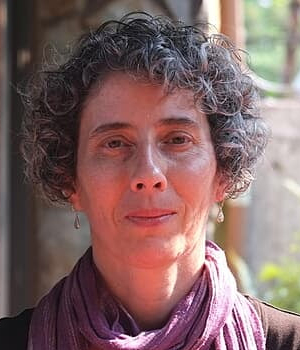 Rachel DiNitto, University of Oregon, introduces her new edited volume on Eco-disasters in Japanese movies from 1954 and 2020, with topics ranging from environmental destruction and industrial pollution to radiation.
Rachel DiNitto, University of Oregon, introduces her new edited volume on Eco-disasters in Japanese movies from 1954 and 2020, with topics ranging from environmental destruction and industrial pollution to radiation.
-

‘The Makanai’: The Magical Mystery Tour of Maiko Foods on Netflix, with Jan Bardsley
Jan Bardsley discusses the lives of maiko (apprentice geisha) and their representation in the manga and Netflix series "The Makanai: Cooking for the Maiko House." -

Entrepreneurs in Japan – A View from History, with Robert Feldman and Kenji Kushida
Robert Feldman of Morgan Stanley in Tokyo and Kenji Kushida of the Carnegie Endowment for International Peace discuss the entrepreneurship in Japan based on the book "History of Innovative Entrepreneurs in Japan" by Takeo Kikkawa. -

Dream Super-Express: A Cultural History of the World’s First Bullet Train, with Jessamyn Abel
Jessamyn Abel explores the cultural history of the 1964 Tokaido Shinkansen, from the transportation technology feat to city scaping, layered cities, and cultural identity. -
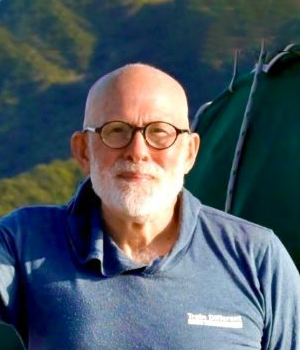 Lowell Shepard, founder of HOPE and other NGOs in Japan, shares stories about “never too late” and other insights from sailing around Japan.
Lowell Shepard, founder of HOPE and other NGOs in Japan, shares stories about “never too late” and other insights from sailing around Japan.
-
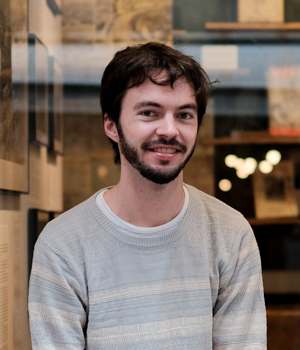
Urban Life and Spatial Cultures in Post-Growth Japan, with Sam Holden
Sam Holden, a Tokyo-based writer who restores public baths and vacant houses in Tokyo and Hiroshima, discusses how a bottom-up urban life culture can be preserved for post-growth Japan. -

Green Tea with Milk and Sugar: When Japan Filled America's Tea Cups, with Robert Hellyer
How did sencha become a Japanese cultural icon? Robert Hellyer introduces his new book and explains how the rise of U.S. demand for green tea in the early 20th century created an industry. When this demand subsided in the 1930s, sencha was marketed in Japan as a “health food” and a gift, two roles that it continues to fill to this day. -
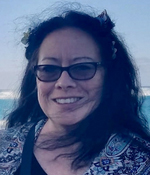
Girl Culture is No Joke, with Laura Miller
Japan’s “girl culture” and its associated occupations, pastimes, and consumption are often belittled and overlooked. Laura Miller examines their origins, shapes, and significant cultural and economic impact.
-
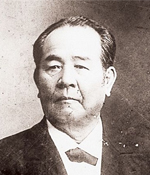
Eiichi Shibusawa's Legacy and Japan's "New Capitalism", with Robert Feldman and Patricia Maclachlan
Prime Minister Kishida Fumio has announced a plan to ensure that Japan’s “new form of capitalism” is good for all. This leans heavily on the tradition of Japan’s “father of capitalism” and “captain of industry”, Shibusawa Eiichi. By increasing the metabolism of the economy and (re)introducing redistribution, Japan hopes that growth in commerce will achieve a "triple win” for business, people, and the economy and society overall. -
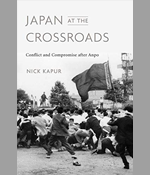
The 1960 Anpo Protests and the Origins of Contemporary Japan, with Nick Kapur
10/5/2021: In 1960, Japan was rocked by the largest popular protests in its history, with the people unified in their opposition to the U.S.-Japan Security Treaty (“Anpo” in Japanese). Ultimately the protests failed, and while U.S. military bases remained on Japanese soil, conservative prime minister Kishi Nobusuke resigned. Nick Kapur explains how these events helped facilitate a variety of transformations in Japanese politics, society and culture that endure to this day. -
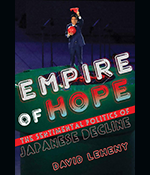
Thwarted Commemorations: The Olympics and Beyond, with David Leheny
7/20/2021: A triumphal 2020 Tokyo Olympics was PM Suga’s ideal vehicle for the message that "Japan is Back". Pandemic delays and dramatic downsizing have muted their appeal, and how it will be remembered is up for debate. In 2018, Abe’s hopes for the 150th Anniversary of the Meiji Restoration were also frustrated, though largely by divergent views of Japan’s political history and the appropriateness of national festivities; these events are often risky when they interact with larger national narratives.
-
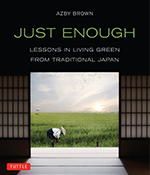 7/13/2021: Traditional Japanese architecture and design emerged from a combination of sophisticated environmental sensibility, scarcity of resources, ethical values built over centuries. It displays a deep understanding of how disparate aspects such as forests, buildings, energy, and waste can be approached as integrated wholes, and led to the minimalist aesthetic and constructional ingenuity that is now prized beyond Japan. Lessons abound for contemporary environmental and architectural design problems.
7/13/2021: Traditional Japanese architecture and design emerged from a combination of sophisticated environmental sensibility, scarcity of resources, ethical values built over centuries. It displays a deep understanding of how disparate aspects such as forests, buildings, energy, and waste can be approached as integrated wholes, and led to the minimalist aesthetic and constructional ingenuity that is now prized beyond Japan. Lessons abound for contemporary environmental and architectural design problems.
-
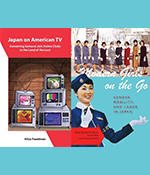 6/29/2021: Alisa Freedman researches Japanese women who have quietly broken norms, boldly spoken out against oppression, and whose personal decisions have transformed international relations and universities. From 1920s "bus girls" to pioneering professors and even celebrities, women have paved their own way in spite of laws or social conventions that limited their choices and opportunities. How can Cultural Studies dispel stereotypes, teach diversity, reveal hidden histories, and initiate activist movements?
6/29/2021: Alisa Freedman researches Japanese women who have quietly broken norms, boldly spoken out against oppression, and whose personal decisions have transformed international relations and universities. From 1920s "bus girls" to pioneering professors and even celebrities, women have paved their own way in spite of laws or social conventions that limited their choices and opportunities. How can Cultural Studies dispel stereotypes, teach diversity, reveal hidden histories, and initiate activist movements?
-

Through a Transnational Lens: Japan and the World, with Sheldon Garon
5/18/2021: Transnational (global) history goes beyond comparative analysis, examining the connections among nations to shed new light on nation-building, war, authoritarianism, and democracy in Japan and the world. Sheldon Garon introduces this approach, drawing on his global histories of savings-promotion, social policies, and “home fronts” in the world wars to analyze domestic factors alongside the impact of spreading global ideas and practices of the time. -
 5/4/2021: Japan’s kissaten (coffee shop) have long served as venues of escape and cultural evolution, offering an unscripted space where everyone from students to salarymen can pursue their interests while enjoying an outstanding cup of coffee. Merry White shares her insights of what we see when we look at Japanese society and politics through the lens of the kissaten.
5/4/2021: Japan’s kissaten (coffee shop) have long served as venues of escape and cultural evolution, offering an unscripted space where everyone from students to salarymen can pursue their interests while enjoying an outstanding cup of coffee. Merry White shares her insights of what we see when we look at Japanese society and politics through the lens of the kissaten.
-

Hello Kitty: Japanese Cuteness at Home and Abroad, with Christine R. Yano and Ellis S. Krauss
4/27/2021: Hello Kitty’s fandom has swept the globe and raised Japan’s national cool level, from Tokyo to Sao Paulo. “Pink globalization” – the spread of goods and images labeled cute (kawaii) from Japan to other parts of the industrial world – connects Japan’s overseas market expansion, distribution and marketing of Japanese products. What have been the larger impacts over time of such rambling cuteness? -
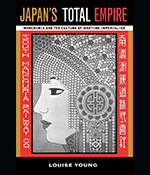 3/23/2021: Louise Young’s expertise on politics and culture in wartime Japan and the sources of right-wing extremism guides this conversation on the slide into de-facto dictatorship in 1930s Japan, and what it tells us about the nature of modern democratic states’ effort to stem facism in the face of the fragility of political norms, institutions’ vulnerability to hostile takeovers, and Faustian bargains that chip away at the guardrails of democracy.
3/23/2021: Louise Young’s expertise on politics and culture in wartime Japan and the sources of right-wing extremism guides this conversation on the slide into de-facto dictatorship in 1930s Japan, and what it tells us about the nature of modern democratic states’ effort to stem facism in the face of the fragility of political norms, institutions’ vulnerability to hostile takeovers, and Faustian bargains that chip away at the guardrails of democracy.
-
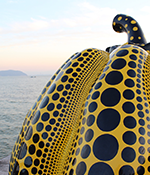
An Insider’s Introduction to Contemporary Japanese Art, with AJ Kiyoizumi
1/26/2021: Contemporary Japanese art has become synonymous with globally renowned artists such as Yayoi Kusama of polka-dotted pumpkin fame and Takashi Murakami, the “Andy Warhol of Japan”. Artists’ rich background in culture and experience, juxtaposition of “kawaii” cuteness and catastrophe, and the blurring of highbrow vs. lowbrow culture contribute to contemporary Japanese art’s unique success. -
 11/17/2020: 20th century French filmmakers created a distinctive Japanese aesthetic using traditional elements, celebrating cultural exoticism, orientalism, and French sensibilities. Japan’s influence on European art and culture -- “Japonisme” --grew with the budding films, featuring contrasts of Western and Japanese themes, clothes, and people. To this day, Japanese films vary in popularity domestically versus overseas, complicating definitions of Japanese cinema.
11/17/2020: 20th century French filmmakers created a distinctive Japanese aesthetic using traditional elements, celebrating cultural exoticism, orientalism, and French sensibilities. Japan’s influence on European art and culture -- “Japonisme” --grew with the budding films, featuring contrasts of Western and Japanese themes, clothes, and people. To this day, Japanese films vary in popularity domestically versus overseas, complicating definitions of Japanese cinema.
-
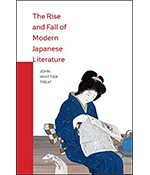 9/15/2020: Murakami’s trajectory seems to have run its course. New themes move away from a Japan-centric setting, including topics such as global environmental degradation. Treat discusses these trends in the context of changing reader-writer-critic demographics and how authors see modern Japan, and if COVID-19 will be the next Fukushima-like crisis to be incorporated into the cultural imaginary as an example of the precarity of life.
9/15/2020: Murakami’s trajectory seems to have run its course. New themes move away from a Japan-centric setting, including topics such as global environmental degradation. Treat discusses these trends in the context of changing reader-writer-critic demographics and how authors see modern Japan, and if COVID-19 will be the next Fukushima-like crisis to be incorporated into the cultural imaginary as an example of the precarity of life.
-
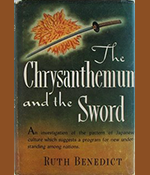
A Review of Ruth Benedict and Japanese Culture, with Amy Borovoy
8/25/2020: Amy Borovoy examines how Ruth Benedict’s 1964 classic, The Chrysanthemum and the Sword, provides deep insights and a compassionate look into WWII Japanese society. That behavior is learned – and therefore can be changed – was Benedict’s most significant contribution to cultural anthropology. Borovoy discusses how Benedict was able to help U.S. occupation forces to understand and reshape Japanese assumptions of the West, as well as Western understanding of Japan. -
 7/14/2020: The impact of the 2020 Olympics’s postponement on Japan may be salvageable, or disastrous. Athletes may miss their peak, businesses will lose valuable expected revenue, and ticket holders will lose their summer trips. But the biggest challenge may be for the Abe government, which pinned so many aspirations – from diversity and inclusion to showcasing to the world that “Japan is back” – onto 2020.
7/14/2020: The impact of the 2020 Olympics’s postponement on Japan may be salvageable, or disastrous. Athletes may miss their peak, businesses will lose valuable expected revenue, and ticket holders will lose their summer trips. But the biggest challenge may be for the Abe government, which pinned so many aspirations – from diversity and inclusion to showcasing to the world that “Japan is back” – onto 2020.
-
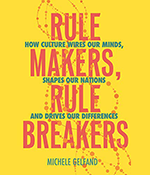 6/23/2020: Professor Michele Gelfand, creator of “Tight-Loose Theory,” lays out how countries differ persistently and significantly in terms of how strong the consensus is on the “right” behavior, and how tolerant people are vis-à-vis deviants. This conversation applies that framework to Japan, from changes in business culture to how society copes with exogenous shocks such as earthquakes or pandemics.
6/23/2020: Professor Michele Gelfand, creator of “Tight-Loose Theory,” lays out how countries differ persistently and significantly in terms of how strong the consensus is on the “right” behavior, and how tolerant people are vis-à-vis deviants. This conversation applies that framework to Japan, from changes in business culture to how society copes with exogenous shocks such as earthquakes or pandemics.
-
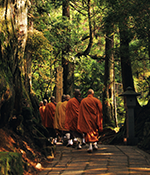 6/16/2020: Religious organizations have played a crucial role in filling the social welfare gap left by the government during disasters like the 3/11 Tohoku earthquake. Since the onset of COVID and social distancing, the number of religious assistance volunteers and available resources have decreased significantly while those in need of help have increased. Greater cooperation may be needed to help those suffering.
6/16/2020: Religious organizations have played a crucial role in filling the social welfare gap left by the government during disasters like the 3/11 Tohoku earthquake. Since the onset of COVID and social distancing, the number of religious assistance volunteers and available resources have decreased significantly while those in need of help have increased. Greater cooperation may be needed to help those suffering.
Art, Culture, History and More
Past JAPAN ZOOMINAR @ UC San Diego that focus on Art, Culture, History and More.
